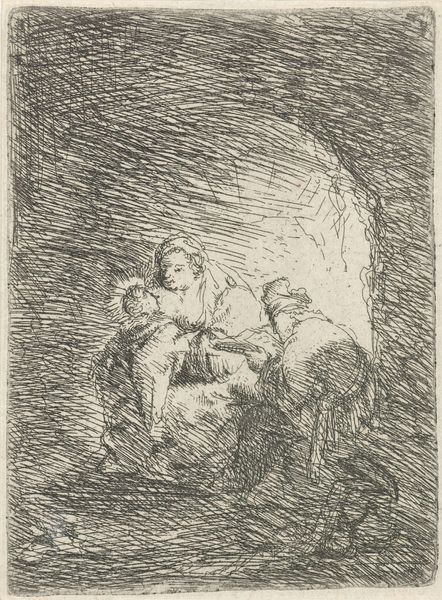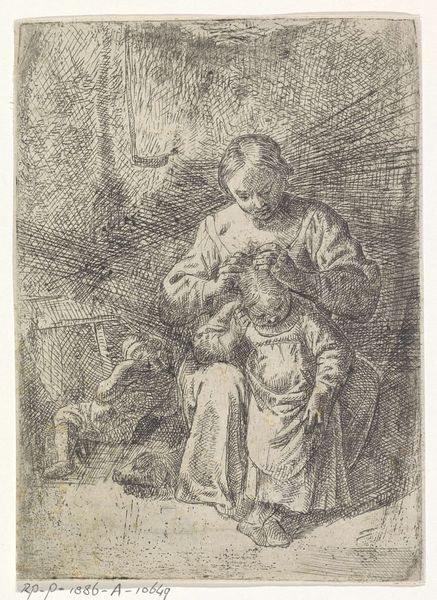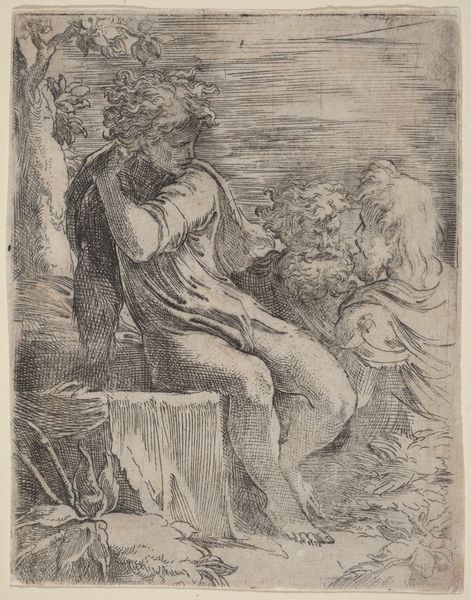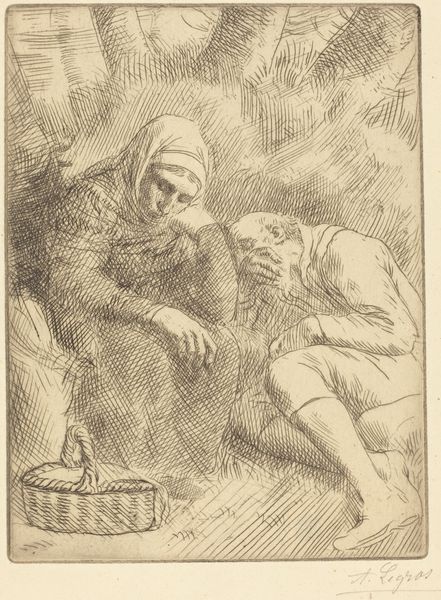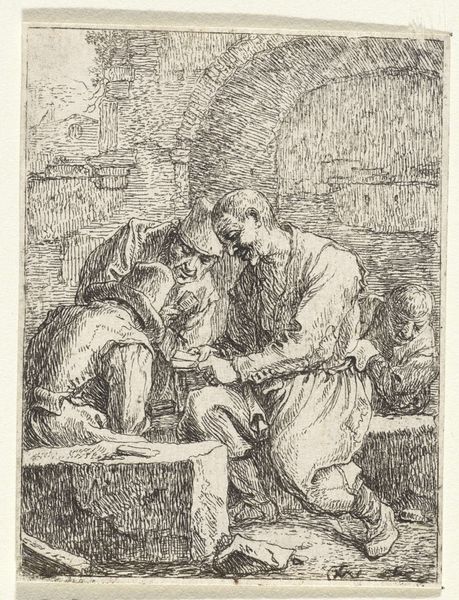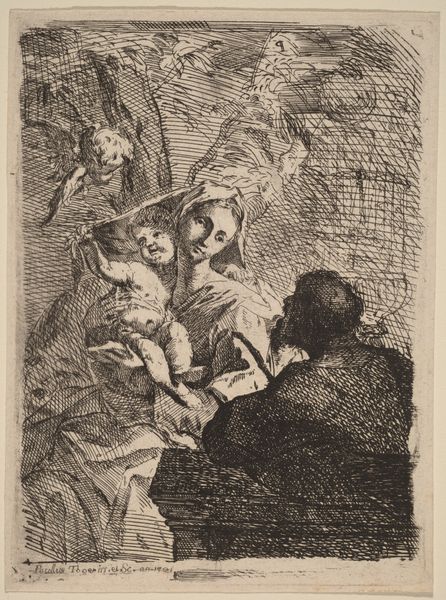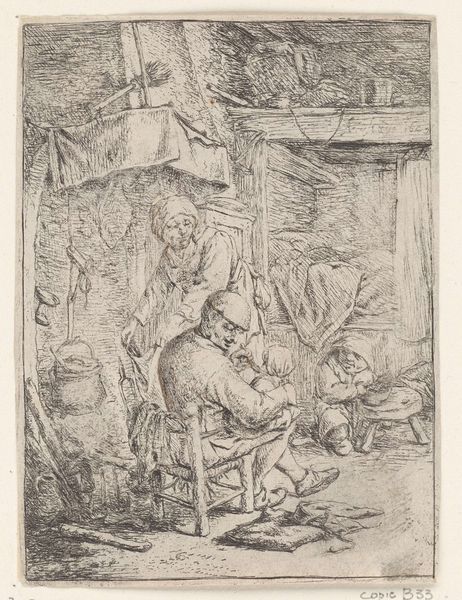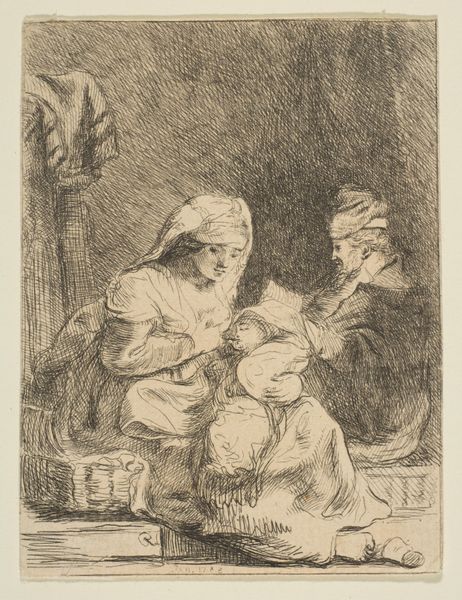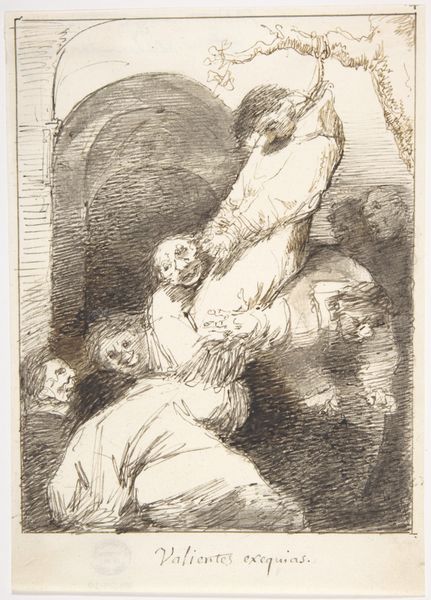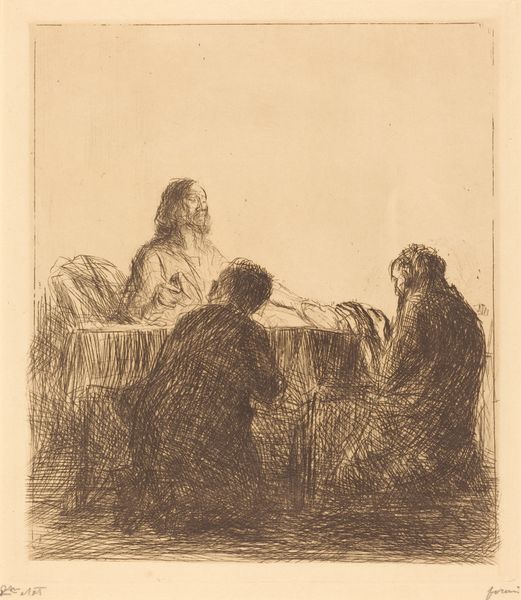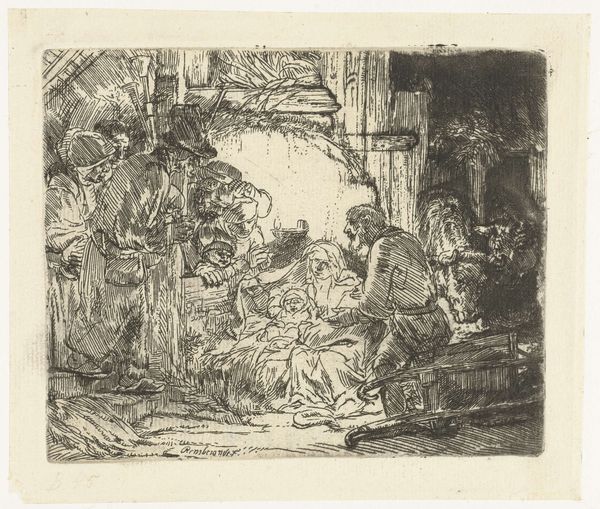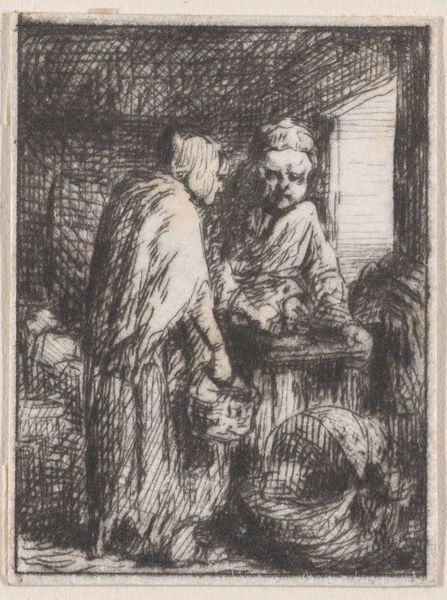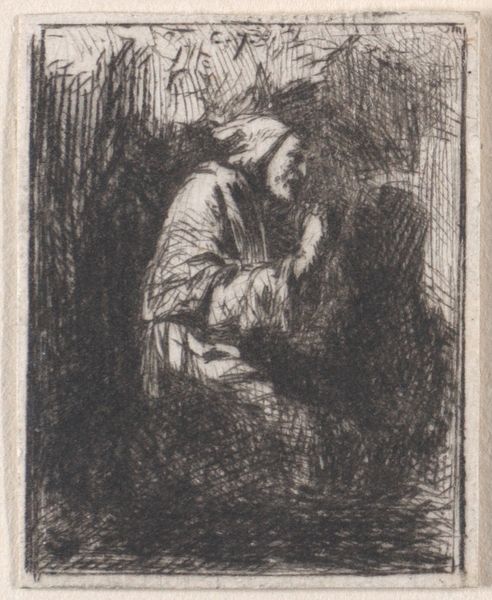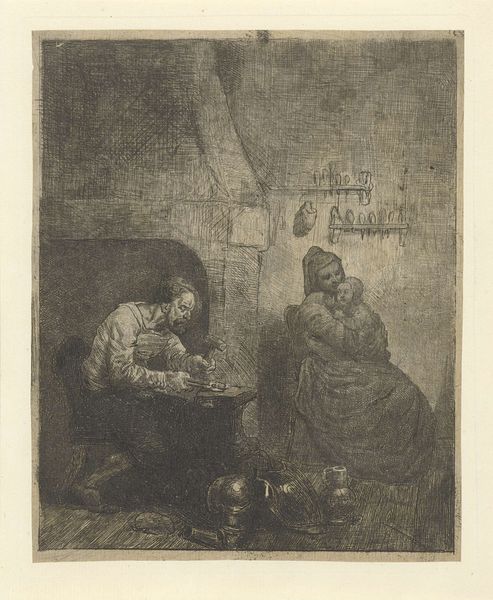
drawing, etching, ink
#
drawing
#
ink drawing
#
baroque
#
etching
#
figuration
#
ink
#
genre-painting
Dimensions: height 154 mm, width 101 mm
Copyright: Rijks Museum: Open Domain
Pieter Steenwijck etched this image of three children with a goat sometime in the mid-seventeenth century. The scene evokes the simple, rustic life that was a recurring theme in Dutch Golden Age art. But, as historians, we can look deeper. The presence of children and an animal points to the era's societal values, where family and agrarian life were idealized. Steenwijck, working in the Netherlands, was responding to a culture rapidly urbanizing due to its mercantile success. The etching presents a counter-narrative, harking back to simpler times. The institution of art itself was changing, with more art being commissioned by middle-class patrons rather than the church or aristocracy. Steenwijck's choice of subject reflects this shift, appealing to a broader audience interested in genre scenes. To understand this work better, we might consult period literature or demographic studies of the Netherlands. Only then can we truly appreciate the social context that gave rise to Steenwijck's art.
Comments
No comments
Be the first to comment and join the conversation on the ultimate creative platform.
